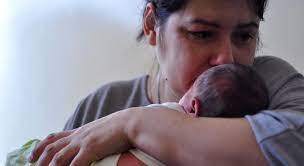
Since Russia invaded Ukraine, 31 attacks on health care have been documented by the World Health Organization. These incidents have killed and injured civilians, as well as destroyed facilities and ambulances, disrupting access to essential health services.
“Today, we call for an immediate cessation of all attacks on health care in Ukraine. These horrific attacks are killing and causing serious injuries to patients and health workers, destroying vital health infrastructure, and forcing thousands to forgo accessing health services despite catastrophic needs”, the heads of UNICEF, the World Health Organization (WHO) and the UN Population Found (UNFPA) declared in a joint statement published on Sunday.
The agencies’ leaders said that to attack the most vulnerable – babies, children, pregnant women, and those suffering from illness and disease, as well as health workers risking their safety to save lives – is “an act of unconscionable cruelty”.
Health needs rising
More than 4,300 births have occurred in Ukraine since the start of the war and 80,000 Ukrainian women are expected to give birth in the next three months while oxygen and medical supplies, including for the management of pregnancy complications, are running dangerously low.
“The health care system in Ukraine is clearly under significant strain, and its collapse would be a catastrophe. Every effort must be made to prevent this from happening…International humanitarian and human rights law must be upheld, and the protection of civilians must be our top priority”, the UN top officials warned.
They added that it is also critical that humanitarian partners and health care workers are able to safely maintain and strengthen essential health service delivery, including immunization against COVID-19 and polio, and the supply of life-saving medicines for civilians across Ukraine as well as to refugees crossing into neighbouring countries.
“UNICEF, UNFPA and WHO are working with partners to scale up life-saving services and support to meet urgent health needs. We must be able to safely deliver emergency medical supplies – including those required for obstetric and neonatal care – to health centres, temporary facilities and underground shelters”, the agencies highlighted.
Dr. Natalia Kanem (UNFPA), Dr. Tedros Adhanom Gebreyesus (WHO) and Ms. Catherine Russell (UNICEF) also called for an ‘immediate ceasefire’ with unhindered access to humanitarian assistance.
“A peaceful resolution to end the war in Ukraine is possible”, they urged.
Deaths and injuries among civilians are increasing
The civilian toll of the war in Ukraine keeps rising. The Office of the UN High Commissioner for Human Rights (OHCHR) has documented 1,663 civilian casualties in the country: 596 killed and 1,067 injured (From 24 February to 12 March).
Most of the civilian casualties were caused by explosive weapons with a wide impact area, including shelling from heavy artillery and multi-launch rocket systems, and missile and airstrikes.
The agency believes that the actual figures are considerably higher, especially in Government-controlled territory and especially in recent days, as the receipt of information from some locations where intense hostilities have been going on has been delayed and many reports are still pending corroboration.
“This concerns, for example, Izium (Kharkiv region), and Mariupol and Volnovakha (Donetsk region) where there are allegations of hundreds of civilian casualties. These figures are being further corroborated and are not included in the above statistics”, OHCHR explains.
In their latest report, the Office noted the report of the Prosecutor General’s Office of Ukraine, according to which as of 9 a.m. (local time) 13 March, 85 children had been killed and more than 100 injured.
They also confirmed receiving the report of the Head of the Investigative Department of the National Police of Kharkiv Region, according to which as of 6 p.m. (local time) 12 March, 205 civilians had been killed in the region.
UN responding to raising needs
According to the UN Office for the Coordination of Humanitarian Affairs (OCHA), the human and socioeconomic costs of the ongoing hostilities in Ukraine continue to mount.
Larger scale evacuations continue to be carried out in parts of eastern and northern Ukraine, although they have been repeatedly delayed due to active hostilities in some of the hardest-hit areas, like Mariupol (Donetska oblast, east).
At the same time, the delivery of life-saving humanitarian assistance continues to be scaled-up, reaching over 600,000 conflict-affected people whose needs continue to grow by the hour.
Source: UN News
https://news.un.org/en/story/2022/03/1113842
 FR
FR EN
EN AR
AR








